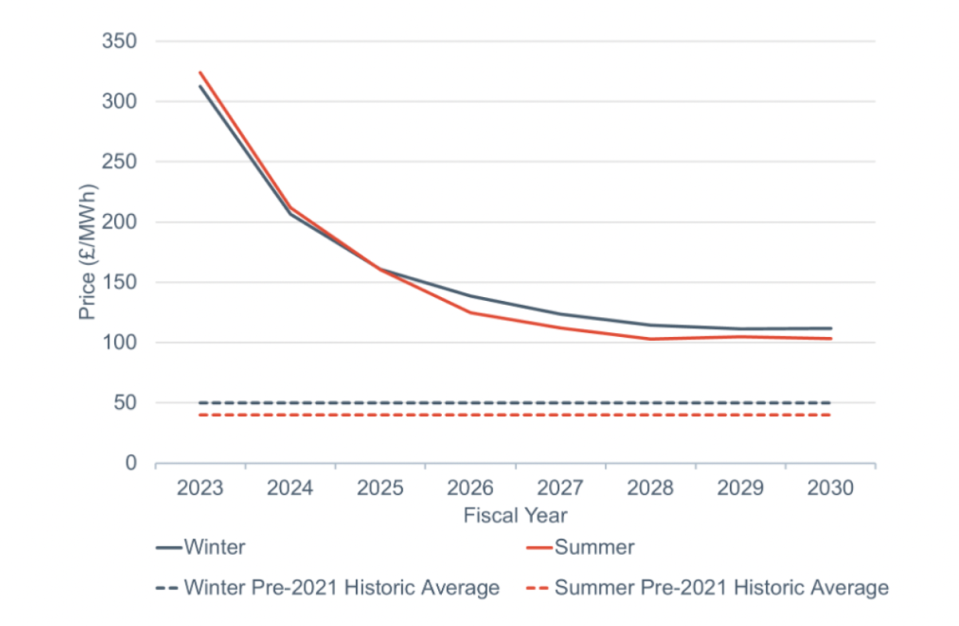Energy bills could drop below £3,000 and fall quicker for firms in 2023, experts predict

Household energy bills could drop below £3,000 per year next winter if gas prices continue to fall, according to energy analysts Cornwall Insight.
The energy specialist said the latest drop-off in gas prices – which have recently fallen below £2 per therm, down from last summer’s record £8 per therm prices – will help ease pressure on household bills, but the benefits will not be felt until the second half of this year.
Robert Buckley, head of relationship development at Cornwall Insight, told City A.M. that it expects the energy price cap to drop to around £2,800 per year in the third and fourth quarters of 2023.
“It will have some effect for prices from April to June, so those bills will be lower than they otherwise would be. But the real effects will come through from the first of July and then you’ll see the cap prices down to the £2800 level,” Buckley said.

This is in contrast to previous forecasts in October by Cornwall Insight, which predicted energy bills could rise to over £4,000 per year in April 2023.
The £2800 prediction, however, would be £200 per year below the rate of the extended Energy Price Guarantee announced by Chancellor Jeremy Hunt last year.
In November, Hunt committed to extending the support package from April by a further 12 months, at a higher rate of £3,000 per year rather than £2,500 per year.
The potential drop-off could require the government to reconsider how much support and at what level it would give to households.
The government wasn’t immediately available to comment on Buckley’s remarks.
Cornwall Insight’s next official forecast is set to be published soon.
The current energy price cap is £4,279 per year and will be reviewed again in March for April to June window.
Businesses could benefit first from prices easing
Buckley also expects energy bills for businesses to come down more quickly than households, because companies are not eligible for the price cap and instead rely on short-to-medium term contracts.
He said: “These lower spot prices will come through quicker for businesses. It may be some businesses which are buying on very short term energy contracts which see quite a lot of benefit through to the end of the winter.
“It certainly puts a different complexion on the government’s price support for businesses because market prices are give or take the level that’s implied in the Energy Bill Relief Scheme for businesses at the moment.”
The support package currently protects businesses at a rate of £211 per megawatt hour (MWh) for electricity and £75 per MWh for gas.
However Hunt is expected to halve support for firms in the spring with a 12 month extension, according to The Times, but nothing has been confirmed by the government.
Despite the drop-off in gas prices, Cornwall Insight maintains its view that energy bills will still remain above pre-crisis levels through to the end of the decade despite burgeoning growth in cheaper green energy and a decreasing reliance on gas.
It expects energy prices to remain above £100 per MWh on the market through to 2030.

Nevertheless, Buckley saw the latest development as a positive one.
He said: “The markets are coming down and that’s what we’re reflecting in the forecast. But the other thing I would say is that market prices are trending down towards where our long term price expectations are. They’re still some way above where the markets have been historically. So if you want to be optimistic, it is good news – hopefully that’s a permanent trend.”